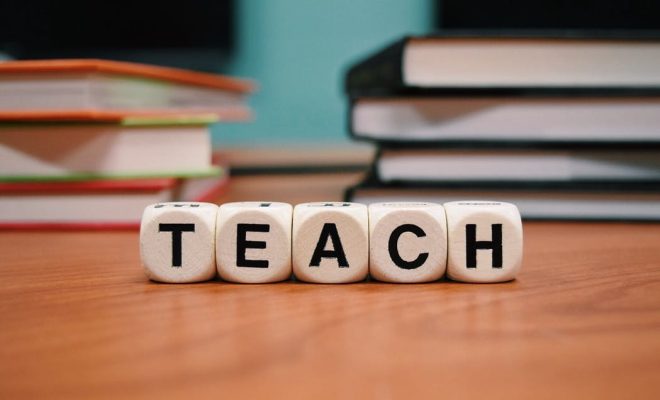What Factors Make a School Effective?

Although diverse school models exist, a fundamental question remains—how are we to know whether or not a school model is effective, and how can effectiveness be judged? A number of research studies focus on characteristics of effective schools. However, there is debate over which attributes should be considered when describing successful schools.
According to some researchers, student performance should be the primary indicator of a successful school. It makes sense, really, since the sole purpose of schools is educating their students. Other researchers propose that students’ social characteristics, such as personal growth should be included when determining effective schools. Another issue with school effectiveness research is that findings are predominantly based on research conducted in elementary schools or unique school settings in the inner city. Consequently, it is suggested that these findings cannot be generalized to all schools.
In truth, there is no one factor that can accurately determine the effectiveness of K-12 schools. Instead, it is a multi-faceted conversation and one that evolves with each generation of students. As suggested above, the context of schooling will impact factors that contribute to effectiveness in specific schools. At the same time, there are attributes and factors that contribute to effectiveness across schooling contexts. By understanding an array of effectiveness attributes we are able to observe which attributes exist at a particular school and which, if adopted might facilitate effectiveness, given a particular school context.
Common elements of success
A 2008 study describes five common characteristics that make up an effective school; these characteristics, and the theory behind them has also been described as the five-factor theory.
- The first factor is quality leadership. In other words, students perform better where the principal provides strong leadership. Effective leaders are visible, able to successfully convey the school’s goals and visions, collaborate with teachers to enhance their skills, and are involved in the discovery of and solutions to problems.
- The second factor is having high expectations of students, as well as teachers. High expectations of students have repeatedly been shown to have a positive impact on students’ performance. More attention should be paid to high expectations of teachers. In other words, teachers who are expected to teach at high levels of effectiveness are able to reach the level of expectations, particularly when teacher evaluations and teacher professional development is geared toward improving instructional quality.
- The third characteristic of a successful school is the ongoing screening of student performance and development. Schools should use assessment data to compare their students with others from across the country. Effective use of assessment data allows schools to identify problematic areas of learning at the classroom and school levels, so that solutions can be generated as to how to best address the problems.
- The fourth characteristic of a successful school is the existence of goals and direction. Administration should actively construct goals and then effectively communicate them to appropriate individuals (i.e., students, teachers, community-at-large). School principals must also be open and willing to incorporate innovation into goals for school processes and practices. It is important to invite input from all stakeholders in the process of developing school goals. Student performance has been shown to improve in schools where all in the school community work toward goals that are communicated and shared among all in the learning environment.
- The fifth and final factor of a successful school is the extent to which the school is secure and organized. For maximum learning to occur, students need to feel secure. Respect is a quality that is promoted and is a fundamental aspect of a safe school. There are also a number of trained staff and programs, such as social workers, who work with problem students before situations get out of hand.
Other elements of student success
Apart from the five factors of a successful school already mentioned, the size of the school seems to be a school effectiveness factor. Research has found that the smaller the school, the better students perform, especially in the case of older students. This is the rationale behind the concept of schools-within-schools. Students in smaller learning environments feel more connected to their peers and teachers, pass classes more often, and have a higher probability of going to college.
A number of school districts view preschool education as a factor that will influence overall effectiveness across all schools located within the district. Evidence suggests that children with preschool experiences fare better academically and socially as they enter kindergarten and beyond. Experiences in literacy and numeracy among early learners not only prepares preschoolers for a kindergarten curriculum that has heightened expectations of prior knowledge, but also helps identify early learners who will need additional support to ensure they are able to have positive learning experiences later on.
Additional factors that influence effective schools include time to learn, teacher quality, and school and parental trust. Research supports the commonsensical view that the more time a student spends learning, and the more efficiently that time is used, the higher their achievement. Schools that find creative ways to extend time on learning will likely be more effective. Schools with high quality teachers also tend to be more effective. Schools able to hire teachers from high quality teacher education programs increase the possibility of being an effective school.
School effectiveness can also be influenced by the frequency, relevancy, and quality of the teacher professional development offered by the school and/or school district. Trust and parental participation are also features of a successful school. Trust between all parties of the school community is vital for enhancing the school’s effectiveness because it supports the prospect that parents and teachers believe in the motives and actions of each other. Parental participation is also important because it sends the message to students that the adults in their lives—both teachers and parents—believe in the importance of education and are willing to make time to support students’ educational experiences and efforts.
So there is no simple solution for labeling the effectiveness of a particular school – but it should certainly go beyond assessments alone.
What are some keys to school effectiveness in your opinion?






